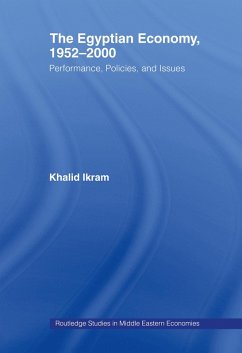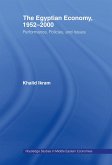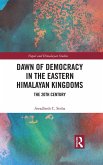* the performance of the Egyptian economy since 1950s
* the factors that have facilitated or retarded economic performance
* the Egyptian authorities approach to economic issues and policy-making
* the chief questions that policy-makers will have to deal with in the next twenty years.
Set apart by Khalid Ikram's intimate knowledge of the Egyptian policy-makers this book presents a unique account of economic development and policy-making in Egypt during 1952 to 2000.
Dieser Download kann aus rechtlichen Gründen nur mit Rechnungsadresse in A, B, BG, CY, CZ, D, DK, EW, E, FIN, F, GR, HR, H, IRL, I, LT, L, LR, M, NL, PL, P, R, S, SLO, SK ausgeliefert werden.









